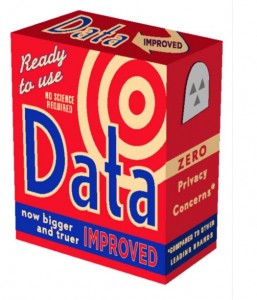Home » Posts tagged 'Health Hacking'
Tag Archives: Health Hacking
Data Empathy: Learning from health care
I just published an essay on Medium about what the dinosaurs of health care can teach health startups.
Nude pictures of celebrities stolen from their own iCloud accounts. Facebook experimenting with the emotions in their users’ feeds. Google reading Gmail before their users do. Fitness trackers without privacy policies, vulnerable to security breaches, and bait-and-switch tactics to sell customers’ data. Almost every day there is a story about the gap between the expectations people have for their own data and what companies actually do with that data. To fix this gap, we first need to rethink the nature of data.
Continue reading at Medium:
https://medium.com/@ginasue/data-empathy-learning-from-health-care-5fb23b1f7289
Why Big Data Won’t Cure Us
The biggest challenge for the use of “big data” in health care is social, not technical. Data-intensive approaches to medicine based on predictive modeling hold enormous potential for solving some of the biggest and most intractable problems of health care. The challenge now is figuring out how people, both patients and providers, will actually use data in practice.
Big Data, September 2013, 1(3): 117-123. doi:10.1089/big.2013.0029.



